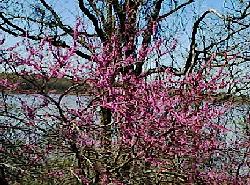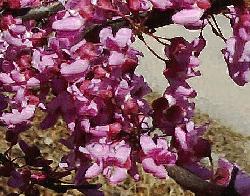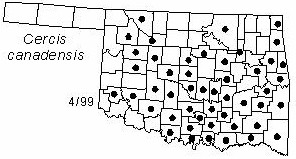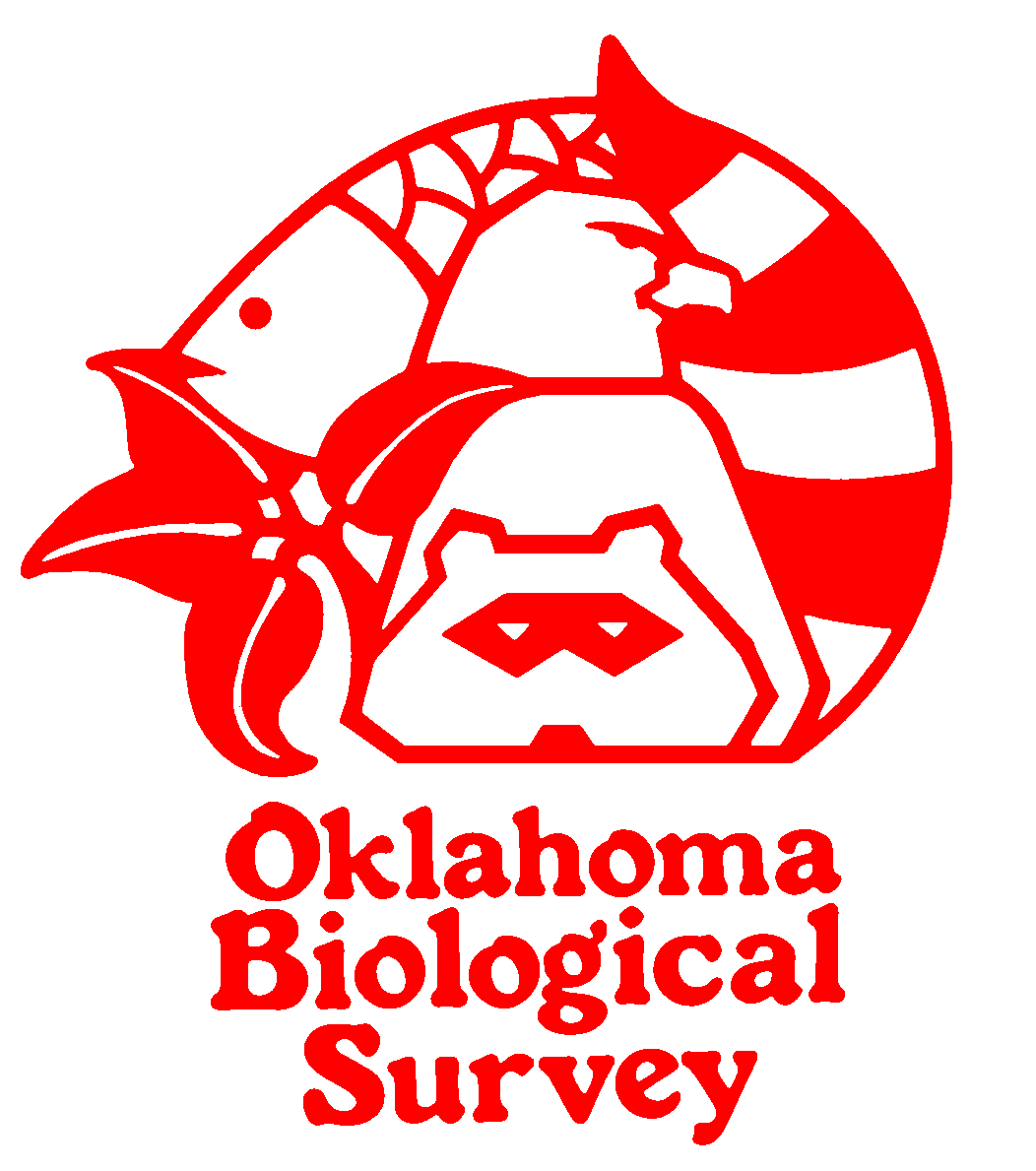

Usually a small tree to 10 m (30 ft) tall and 25 cm (10 in) in diameter. Bark dark gray or brown, smooth, becoming furrowed into scaly plates on older trunks and branches. Twigs long, thin, brown, glabrous. Buds reddish-brown, blunt, with two scales, no terminal bud. Leaves alternate, long-petioled, nearly round with broad short point and cordate at the base, 6-11 cm (2.4-4.3 in) long and wide, margins entire, dull dark green above, paler below. Flowers very numerous on old twigs in early Spring before leaves appear, about 12 mm (0.5 in) long, with 5 purplish-pink (occasionally white) petals. Fruits legumes, sometimes numerous, 6-8 cm (2.4-3.1 in) long, flattened, green to purplish in Summer, turning dark brown and falling in early Winter.
Distribution: Common in the eastern half of the U. S. and northeastern Mexico.
Habitat: Understory of hardwood forests, especially at forest margins.
NWI status: UPL
Comment: Redbud is the offical state tree of Oklahoma. The seeds are eaten by birds and the foliage is browsed by deer. Cercis is the ancient name of a closely related old-world tree; canadensis refers to Canada, where the species is uncommon.
Distribution in Oklahoma: 
BACK
NEXT
RETURN TO INDEX
Last update: 9/9/99
 Go to Oklahoma Biological Survey Home Page
Go to Oklahoma Biological Survey Home Page
 Disclaimer
Disclaimer